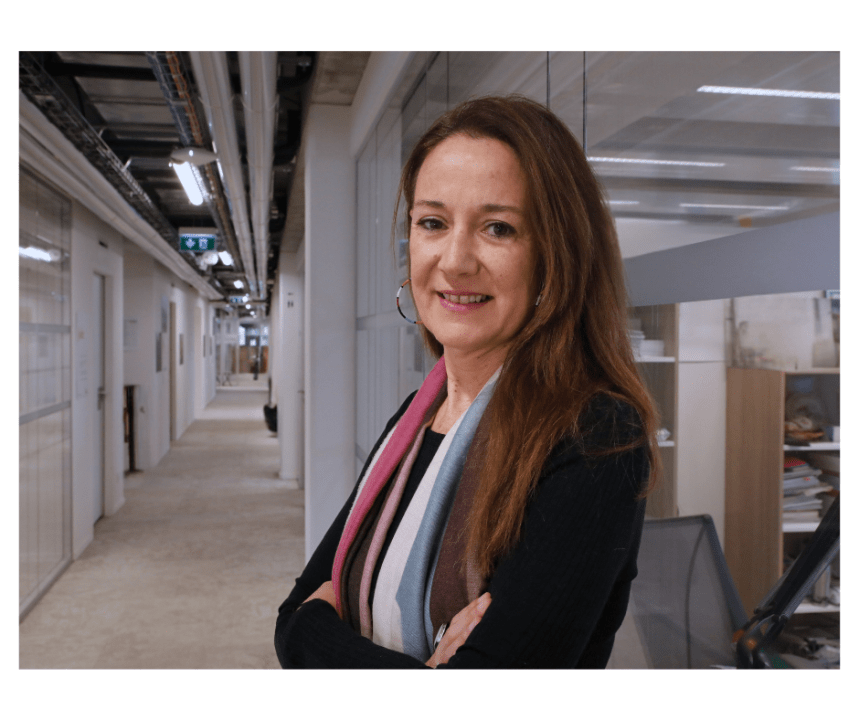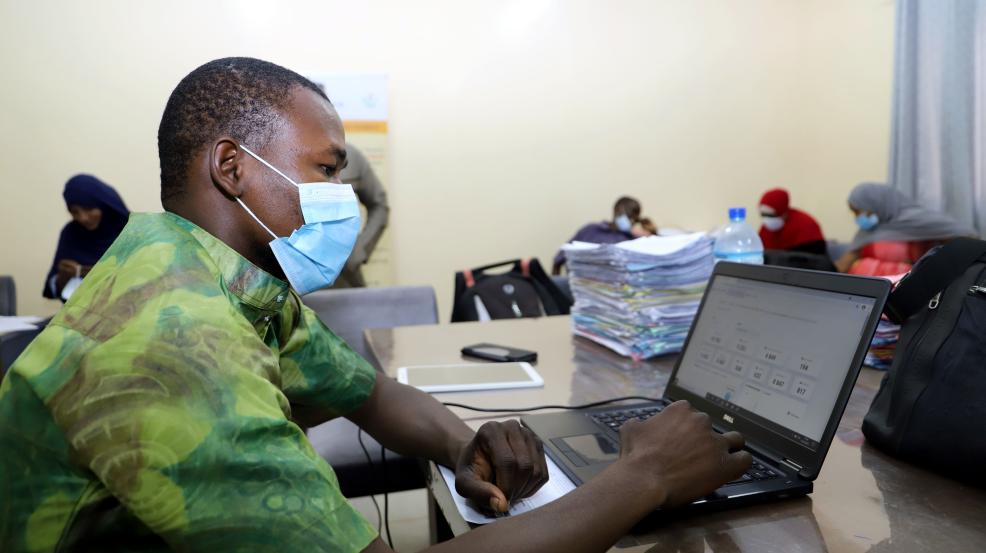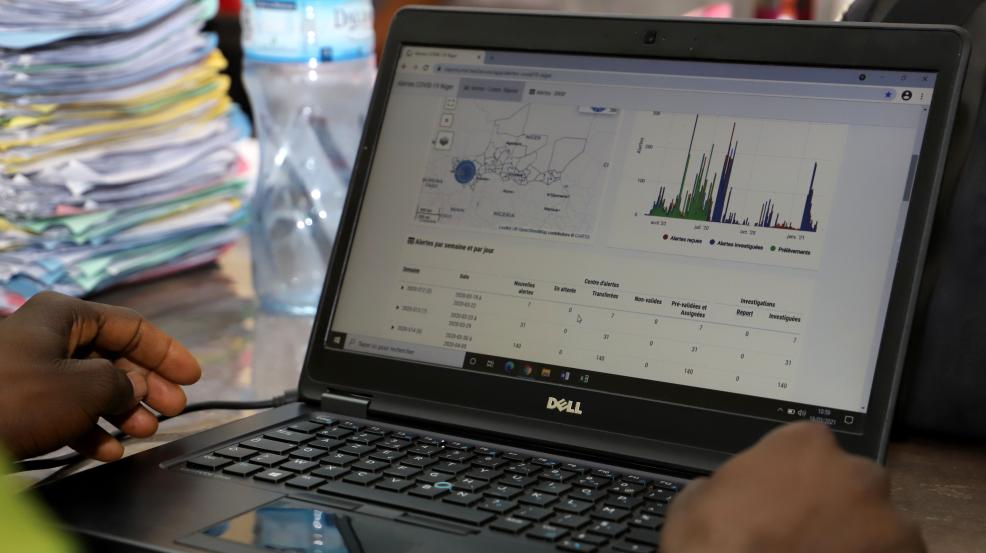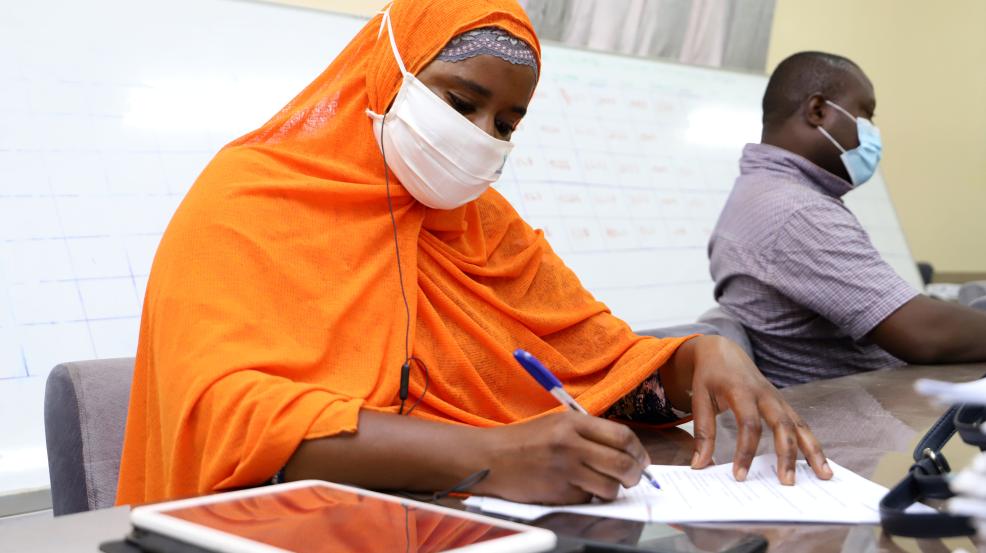Kader Bouba
Alert Epidemic : An Innovation to Improve Health Surveillance in Niger
- Share on Facebook
- Share on Telegram
- Share on LinkedIn
- Share on Twitter
- Copy link
Page url is copied

Beatriz Beato-Sirvent, Paris janvier 2025
Aurélie Baumel
Since when have you been working on the Epidemic Alert project?
Beatriz, Deputy Director of The MSF Foundation and Project Lead for Epidemic Alert: I have been working on this project since January 2023, when I joined The MSF Foundation. The project was already well underway, as it began during the COVID crisis. It was launched in an innovative way by offering the Ministry of Health resources—mainly developers we had previously worked with—and our expertise to support them during the health emergency.
We partnered with Epicentre, MSF’s epidemiology center, which is based in Niger, to align with the ministry’s needs. Their primary concern was identifying COVID-19 cases. We also collaborated with Medic Mobile, an NGO present in Niger, to develop a platform called "COVID-19 Alert" to facilitate case notifications.
How did the project evolve afterward?
Beatriz: Very quickly, it became clear that the application worked well beyond just COVID-19 cases. The authorities then asked if we could extend this technology to other epidemic-prone diseases.
In 2021, we expanded the project and developed Epidemic Alert, using the same software to monitor measles, meningitis, and cholera. A pilot phase was launched in five health centers and at the Maradi hospital. On-site, staff were trained and equipped with tablets to relay information.
The initial alert still comes from community health workers who travel through rural areas and can call the health center. The digital alert system allows them to report cases using a simple mobile phone—even without an internet connection.
What is the innovation behind Epidemic Alert? What advantages does it offer?
Beatriz: To fully understand, you need to consider that the previous system relied on paper-based methods. A community health worker had to fill out a form, travel to the local health center to inform a nurse, who would then escalate the alert to the district level. This process could take several weeks.
With Epidemic Alert, all information is shared within 24 hours, allowing for a much faster response. And when dealing with an epidemic-prone disease, that makes a huge difference.
Why is Niger a relevant location for this type of project?
Beatriz: Niger is a vast country located in what’s known as Africa’s "meningitis belt"—a region where meningitis is highly prevalent. Niger is also particularly vulnerable to measles and cholera outbreaks.
For us, implementing this type of platform in a region with a high epidemic risk adds significant value. The sooner an outbreak is reported, the faster we can respond, investigate, and deploy treatment and vaccination efforts.
What were the results of the preliminary study?
Beatriz: After a year of implementation, the results were very positive. We presented a report to district and national authorities, who were convinced by the solution. We then worked on integrating Epidemic Alert with Niger’s national medical data management system, DHIS2.
What happened in 2023?
Beatriz: In July 2023, just after we presented the platform to the Ministry of Health, a coup took place on July 26.
Following this government change, we continued planning the platform’s deployment, but over time, it became clear that the new authorities were no longer as supportive of the project. Eventually, the Ministry of Health decided not to adopt Epidemic Alert, opting for a different platform to manage epidemic surveillance in the country.
How did you react to this decision?
Beatriz: We ended the project and consolidated our work by providing the Nigerien Ministry of Health with a user guide and a final report.
Despite this setback, the experience we gained could be valuable in other contexts. We understand that we operate in volatile environments—this is part of our role as innovators at the Foundation. We accept the inherent risks.
This is not a failure. We have learned a lot and built valuable expertise. We hope this experience can be shared with other MSF sections or implemented in other countries.
Where, for example?
Beatriz: Other countries in the meningitis belt, like Chad, where MSF is also present, could benefit. However, for this to happen, local authorities must understand and embrace the idea of improving epidemic management through such platforms.
For a government, it requires an initial investment, but in the long run, it significantly improves epidemic response.
And on a personal level, what do you take away from this project?
Beatriz: I really appreciated this project because I’ve spent years working in epidemic-prone settings, and I know firsthand the consequences of delayed alerts and slow response times. It leads to more cases, more deaths, and more suffering.
This alert system is incredibly useful and relevant, especially in regions where rural areas are vast and difficult to reach. It changes the way epidemics are managed—it allows for much earlier intervention, reducing the overall impact.
So, I am really proud to have contributed to the development of this project. And I hope this isn’t the end of the story.
I have worked extensively in the field in epidemic-prone settings, and I know what it’s like to face late alerts and delayed responses. I am very proud to have contributed to this project, and I hope this isn’t the end of the story.

En images
Consultation au centre sanitaire Madarounfa et N'yelwa, région de Maradi, Niger 2021
Kader Bouba
Centre sanitaire Madarounfa et N'yelwa, région de Maradi, Niger
Kader Bouba

Direction de la Surveillance et de la Riposte aux Epidémies, Niger 2021
Souleymane Ag Anara

Direction de la Surveillance et de la Riposte aux Epidémies, Niger 2021
Souleymane Ag Anara

Direction de la Surveillance et de la Riposte aux Epidémies, Niger 2021
Souleymane Ag Anara
Consultation au centre sanitaire Madarounfa et N'yelwa, région de Maradi, Niger 2021
Kader Bouba
Centre sanitaire Madarounfa et N'yelwa, région de Maradi, Niger
Kader Bouba

Direction de la Surveillance et de la Riposte aux Epidémies, Niger 2021
Souleymane Ag Anara

Direction de la Surveillance et de la Riposte aux Epidémies, Niger 2021
Souleymane Ag Anara

Direction de la Surveillance et de la Riposte aux Epidémies, Niger 2021
Souleymane Ag Anara
